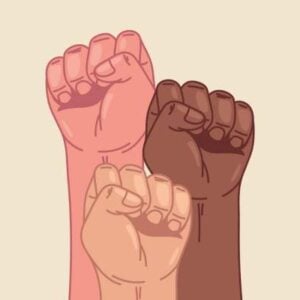A Zimbabwe court recently acquitted three human rights activists—Robson Chere, Namatai Kwekweza, and Samuel Gwenzi—on disorderly conduct charges more than a year after their arrest, drawing attention to the misuse of the criminal justice system against dissenting voices, Human Rights Watch stated. The activists had been detained in July 2024 after being pulled off a plane at Harare International Airport and held incommunicado for nearly eight hours, amid an intensified crackdown on opposition and civil society groups ahead of the Southern African Development Community Summit in Harare.
The activists were initially charged with participating in an illegal protest outside the Harare Magistrates Court in June 2024. United Nations special rapporteurs described these charges as “baseless” and aimed at targeting human rights defenders and opposition voices advocating for democracy, human rights, and accountability in Zimbabwe. After being denied bail initially, they were granted release by the High Court in September 2024 following 35 days of detention. The trial, which began in September 2024, proceeded for nearly a year despite evidence that one activist, Kwekweza, was not in the country at the time of the alleged offense.
During the trial, lawyers documented evidence of torture and ill-treatment. Chere, a teachers’ union leader, appeared with bloodstained clothes and limped in pain, having sustained extensive soft tissue injuries requiring urgent medical attention to prevent permanent kidney damage. Gwenzi, a local council member and activist, reported assaults and threats to his family by interrogators. These abuses highlight broader patterns of arbitrary arrests and politically motivated prosecutions under President Emmerson Mnangagwa’s administration, which has restricted civic and political space through intimidation, harassment, and repression.
Despite the acquittal, Kwekweza noted that the victory was only partial, as systemic issues remain, with many others still facing judicial persecution, arbitrary convictions, abductions, and torture for political reasons. Human Rights Watch emphasized that Zimbabwe’s authorities should uphold domestic and international legal obligations, including fair trial rights and protections against torture, and cease using the criminal justice system to target activists, human rights defenders, and journalists. The case underscores the ongoing challenges to democracy, rule of law, and fundamental freedoms in the country.







